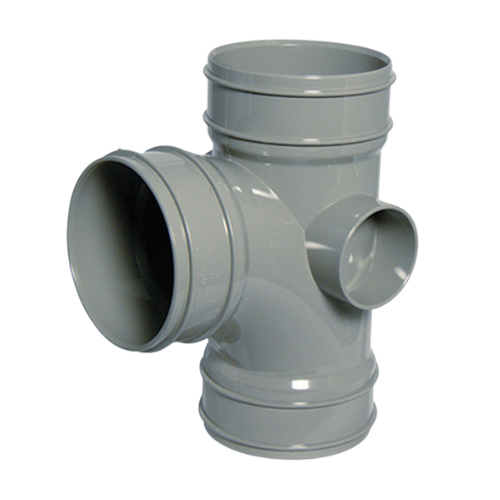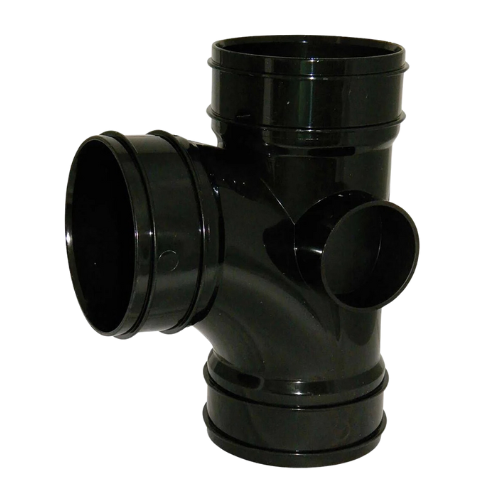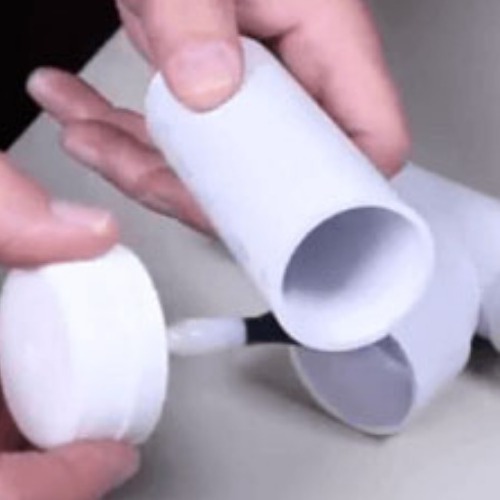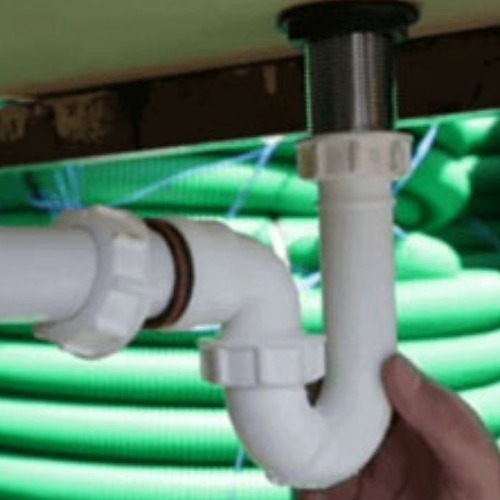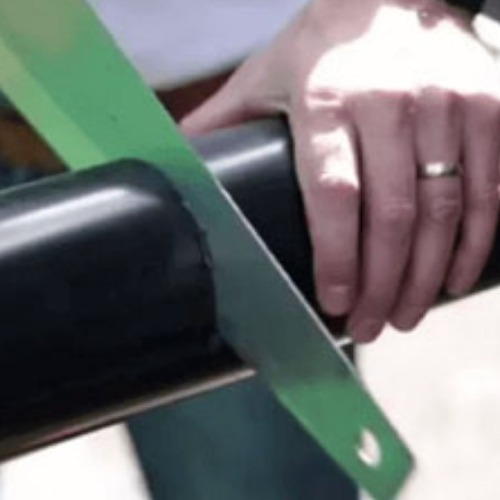Features & Benefits of Solvent Weld Soil Pipes
Our 110mm solvent weld pipes and fittings offer a range of features and benefits that make them an ideal choice for efficiently and reliably managing waste and drainage in residential, commercial, and industrial applications:
- Durable Construction: Constructed from high quality uPVC material, solvent weld soil pipes and fittings are inherently durable, capable of withstanding the rigours of daily use and environmental stressors.
- Leak Resistant Joints: Solvent cement bonding creates seamless joints between pipes and fittings, ensuring a tight, leak-resistant weld that minimises the risk of water damage and sewage leaks.
- Corrosion Resistance: uPVC material is resistant to corrosion, rust, and degradation from chemicals, prolonging the lifespan of the solvent weld soil system and reducing maintenance requirements.
- Smooth Interior Surface: The smooth interior surface of PVC pipes minimises friction and resistance to fluid flow, promoting efficient drainage and waste removal.
- UV Resistance: Solvent weld soil pipes and fittings are resistant to ultraviolet (UV) light, making them suitable for both indoor and outdoor installations without degradation over time.
- Compliance: Our solvent weld soil pipes and fittings are manufactured to BS EN 1329-1:2000, BS 4514:2001 standard, ensuring reliability and safety in plumbing installations.
- Cost Effective: uPVC solvent weld soil pipes are cost effective compared to alternative materials, offering a balance of affordability and performance.
- Easy Installation & Low Maintenance: Solvent welding offers a simple and efficient method for joining pipes and fittings. Once installed, the system requires minimal maintenance, contributing to long term cost savings.
Compatibility With Cast Iron, Asbestos Cement & Pitch Fibre
Our comprehensive range of solvent weld soil products is designed to seamlessly integrate new soil pipe installations with existing infrastructure.
Our SP140 Connectors are the solution for compatibility concerns when dealing with older buildings featuring cast iron, asbestos cement pipes, or pitch fibre. These innovative connectors ensure a snug fit between PVC pipes and other pipe types. Simply insert your PVC pipe into the ring seal on one end, while the rubber fins on the other end create a secure, water and gas-tight joint with cast iron, asbestos cement, or pitch fibre pipes.
For reliable solvent weld joints, we recommend using our SC250 Solvent Cement, manufactured to BS6209 standards. This high quality cement guarantees strong, durable connections that meet industry standards for safety and performance. Explore our Ring Seal Soil section for additional items that perfectly complement this soil system, ensuring a complete and efficient installation process.
Ready to connect your new soil pipe to old cast iron or asbestos cement? Watch our video tutorial for step-by-step guidance and expert tips.
How to Make a Solvent Weld Joint
- Ensure the end of the pipe is cut squarely, free from any burrs or debris. We suggest using a solvent cleaner to clean the pipe ends.
- Prepare for a secure connection by generously applying SC250 Solvent Cement to both the outer surface of the pipe and the inner surface of the fitting. With precision, firmly push the pipe into the fitting, incorporating a slight twist to evenly distribute the cement. Swiftly wipe away any surplus cement with a clean, damp cloth, leaving behind a pristine finish.
- Allow a brief period of 5 minutes for the joint to set before handling, ensuring stability and integrity. For optimal results, exercise caution and allow a recommended 12-hour period before conducting any water testing as a precautionary measure. It's important to note that joints created through solvent weld cannot be disassembled once set, emphasising the significance of precision and care during the installation process.


